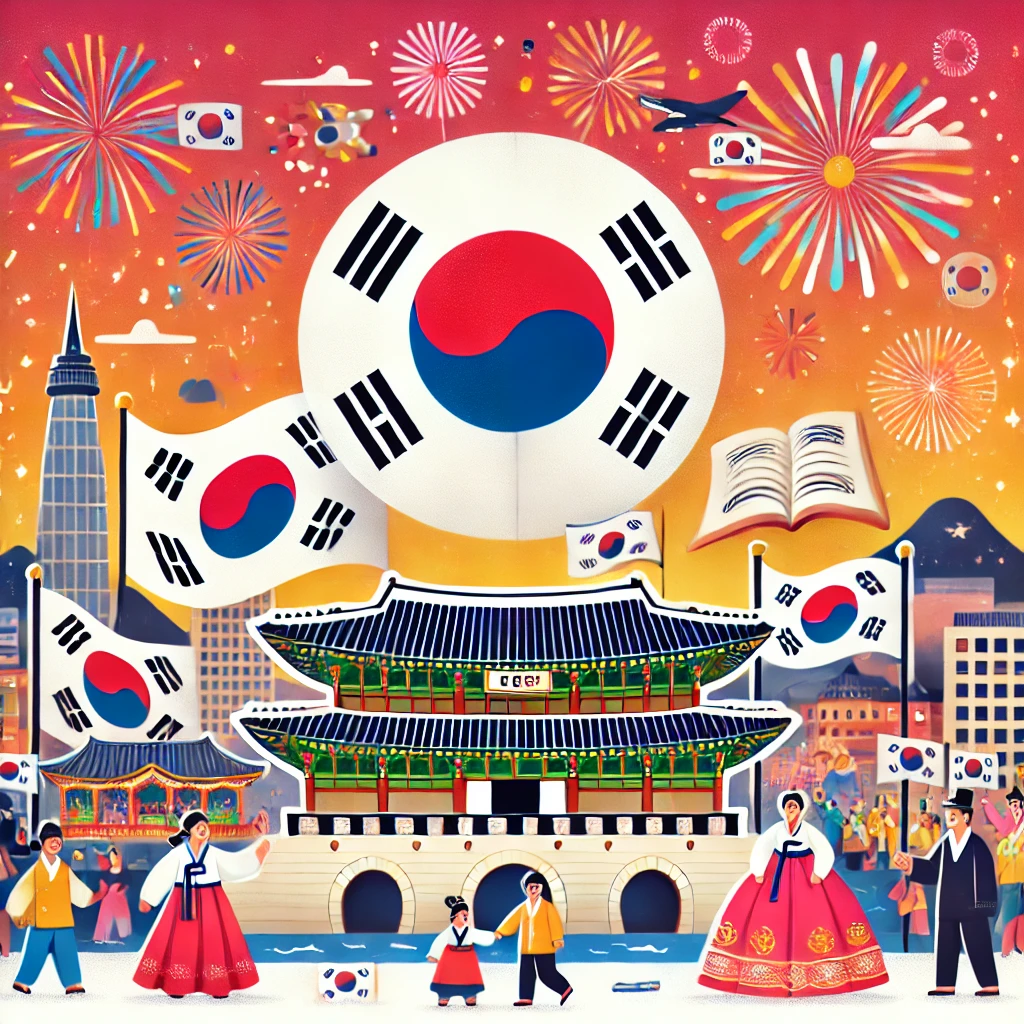
Korean Constitution Day, known as Jeheonjeol in Korean, is a significant national holiday in South Korea. Celebrated annually on July 17th, it commemorates the establishment of the country’s constitution, a cornerstone of Korean democracy and governance. This day holds deep historical and cultural significance, reflecting the values and principles enshrined in the constitution.
On Korean Constitution Day, citizens reflect on the foundational document that outlines their rights and responsibilities, as well as the structure and functions of the government. Various ceremonies, exhibitions, and educational programs are held to promote constitutional awareness and appreciation among the populace.
Jeheonjeol serves as a reminder of the democratic fabric of South Korea, encouraging citizens to express their patriotism and love for their country. This day is not just about honoring the constitution; it is a time for reflection, celebration, and appreciation of the principles that shape the nation’s identity and progress.
About Korean Constitution Day
Also known as 제헌절 (Jeheonjeol) in Korean, Korean Constitution Day is observed on July 17th each year. This significant national holiday marks the enactment of the first Constitution of the Republic of Korea in 1948. The day celebrates the establishment of the constitutional framework that underpins the nation’s democratic governance.
The historical roots of Korean Constitution Day trace back to the end of World War II. In 1945, Japan’s surrender ended its occupation of Korea, leading to Korean independence. Efforts to establish a new government system culminated in the adoption of the constitution by the Korean National Assembly on July 17, 1948. This monumental event transitioned Korea from a provisional government to a constitutional democracy.
Today, Korean Constitution Day is celebrated with various events and ceremonies nationwide. It serves as a reminder of the constitution’s role in safeguarding the rights and freedoms of the Korean people and promoting the democratic principles that shape the nation.
Traditions and Observances of Korean Constitution Day
Jeheonjeol, or Korean Constitution Day, is celebrated with a variety of traditions and customs that honor the historical significance of this event. Let’s explore some key traditions and customs associated with this important holiday.
The day typically begins with a flag-raising ceremony, where the national flag of South Korea, the Taegeukgi, is hoisted. This ceremony symbolizes national unity and pride. Another significant tradition is the public reading of the Korean Constitution. Government officials, scholars, and citizens gather to read and reflect upon the document, emphasizing its principles and values. This reinforces the rights and responsibilities granted to the Korean people.
In addition to formal ceremonies, Korean Constitution Day features recreational activities and cultural events. Many people visit historical sites and museums to learn more about the country’s history and the constitution’s significance. Traditional music and dance performances, exhibitions, and parades showcase Korean culture and heritage.
Family gatherings and picnics are also popular during Jeheonjeol. Traditional Korean dishes such as bibimbap, bulgogi, and kimchi are commonly enjoyed. These gatherings foster a sense of community and shared appreciation for the nation’s democratic values.
Korean Constitution Day is not only a celebration of the country’s constitutional system but also an opportunity for Koreans to reflect on the values of democracy, freedom, and equality upheld by the constitution. It is a day that unites the nation and promotes a sense of pride and unity.
Understanding the Constitution of South Korea
The Constitution of South Korea, officially known as the Constitution of the Republic of Korea, is the supreme law of the country. Adopted on July 17, 1948, it has been instrumental in shaping the nation’s governance and societal framework.
The South Korean Constitution establishes the organization and functioning of the government, delineating the separation of powers among the executive, legislative, and judicial branches. This system of checks and balances ensures a stable and democratic governance structure.
Key provisions of the constitution include the protection of individual rights and freedoms, equality before the law, and the promotion of social welfare. It guarantees fundamental rights such as freedom of speech, religion, assembly, and the press. Additionally, it outlines the principles of a democratic and free-market economy.
The constitution has profoundly impacted Korean society by providing stability and continuity in governance, facilitating peaceful transitions of power, and fostering a democratic political culture. It has also influenced social and economic policies, promoting social justice and protecting citizens’ rights.
Jeheonjeol / Constitution Day in Modern Korea
Korean Constitution Day, or Jeheonjeol, remains highly relevant in modern Korea. Celebrated annually on July 17th, this national holiday commemorates the promulgation of the South Korean constitution in 1948. It provides an opportunity for Koreans to reflect on the meaning and traditions associated with their constitution.
Over the years, Jeheonjeol has evolved from solely honoring the adoption of the constitution to encompassing broader themes of democracy and governance. It serves as a reminder of the progress made in establishing and preserving democratic principles within the country.
The South Korean constitution, influenced by democratic ideals, has significantly shaped the nation’s political landscape. It provides a framework for the separation of powers, protection of individual rights, and the establishment of a representative government.
On Korean Constitution Day, citizens participate in various activities to celebrate the principles enshrined in their constitution. Public events, exhibitions, and educational programs promote civic awareness and participation. Jeheonjeol serves as a reminder of the importance of democratic values and encourages active citizen engagement in the political process.
